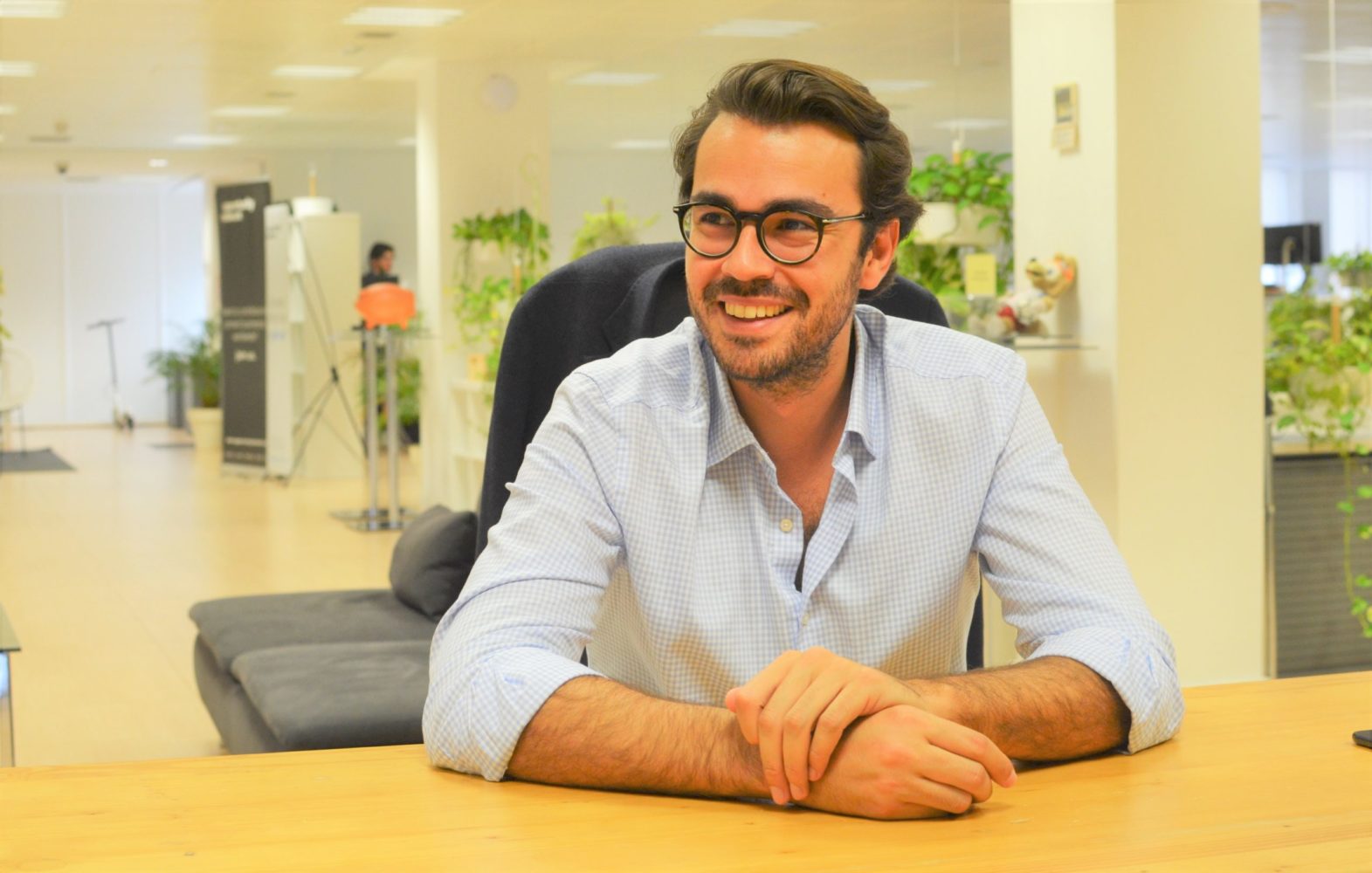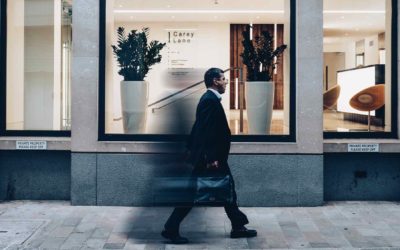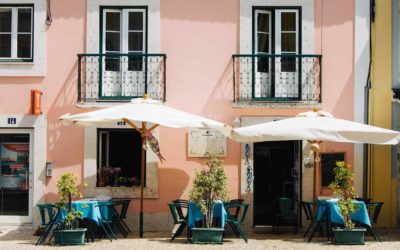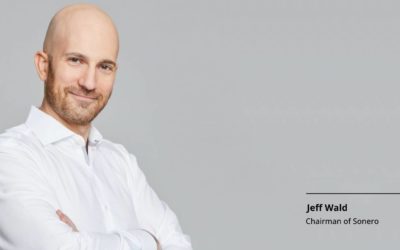Ricard Camp, Managing Director at Kalia
Against all odds, a Spanish real estate developer decides to invest in Senegal. 6 years later, he shares his lessons learned on doing business in the country and his view on its future.
By trusting his father’s entrepreneurial gut and experience, Ricard Camp, a real estate developer and second-generation director at his family company, decided to invest in Senegal and provide housing for everyone’s needs while supporting the country’s growth.
The idea came when his father, after completing a humanitarian project with the United Nations, seized the opportunity to start a bigger project in Senegal. He trusted Ricard and his brother to work on an endeavor that could benefit 150 families from Saint Louis, the former capital of the French colony. Once they discovered Senegal’s potential and housing needs, both father and sons decided to go above and beyond to support the country. Especially since Senegal has been among Africa’s most stable countries, politically, and macro economically.
In 2013 Kalia was created, a trademark of Zeltex Senegal S.A., focused on the development, construction, and promotion of real estate in Senegal.
“There was no market research nor analysis. The UN project my dad was working with, was located here and then we just felt for the country. The stability, the nice people and the market opportunities made us stay.” said Camp when asked why they decided to stay and pursue further projects there. Senegal is also known as “The country of teranga”, meaning hospitality, respect, and solidarity in the local language of Wolof, and Camp agrees the name is more than fitting for the land and its people.
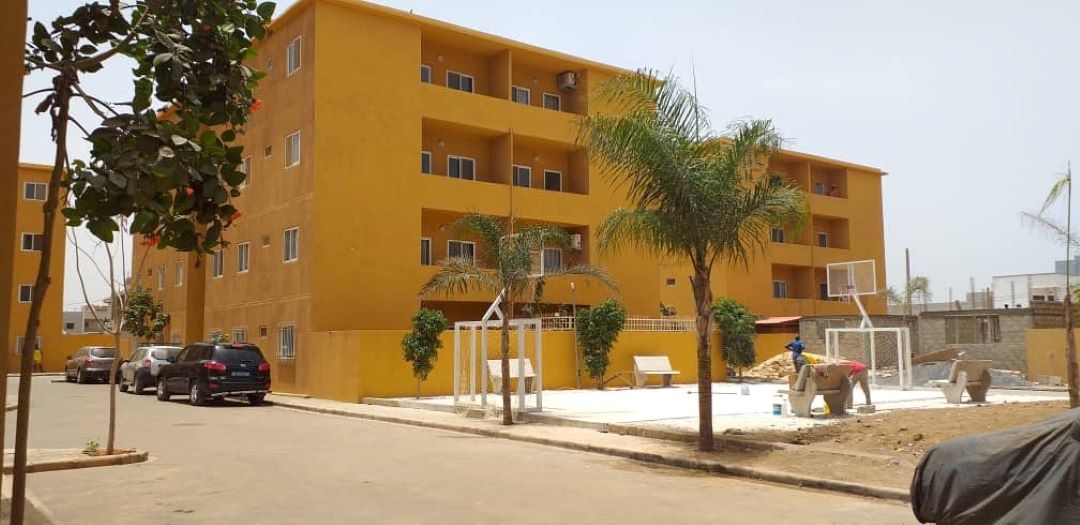
Kalia’s first social housing development in Dakar
Trusting Their Gut
Once the social housing project was completed, Camp, his father and brother, noticed that some growing cities were experiencing housing needs, and decided to bet on a second project. This time on the outskirts of Dakar, where 80% of the companies in the country are based and where the economic and administrative life takes place.
“Everyone told us we were crazy. Apartments on the outskirts of the city? No one is going to buy it.” And they were right—for a while. The first years were tough, but as the country’s economy began to grow, the need for housing increased. “The market began to understand what we were doing.” People there were used to live in single story houses and now, the country’s growth is pushing them to adopt apartments as a modern way of life.
“We saw that starting in 2013, the economic trend began to change.”
According to the World Bank Organization, Growth in Senegal has been high, from growing 2% in GDP to over 6% since 2014. In 2017 it accelerated to over 7% and especially with the oil and gas production expected in 2022, the forecast remains optimistic, having over 6% in the following years, and even reaching a double digit. Moreover, these improvements predict that the population in Senegal is expected to double in the next 25 years, having an average age at 21 years old.
When the project started, the main highway was under construction. It took an hour and 30 min to get to the construction site from the city center. Today, it takes 20 minutes on the new highway to reach the destination.
Impact in the Local Economy
Although there’s always a high expectation for profits, Kalia’s housing projects have already seen an impact on the investment that goes beyond revenues.
Five years ago, only a few of the company’s employees had cars. Today the majority of employees own one and some are even buying their own houses and are traveling abroad for vacations. All of Kalia’s employees are from Africa and they are the living proof of the impact that investing in Senegal can have in the day-to-day of its people.
“You can see on a personal level how this project can help people. People evolve as does the quality of life and it’s great to be part of this improvement. Supporting Senegal’s development on projects with my dad and my brother makes a lot of sense for me. We all have the same objective. We all want this region to improve.”
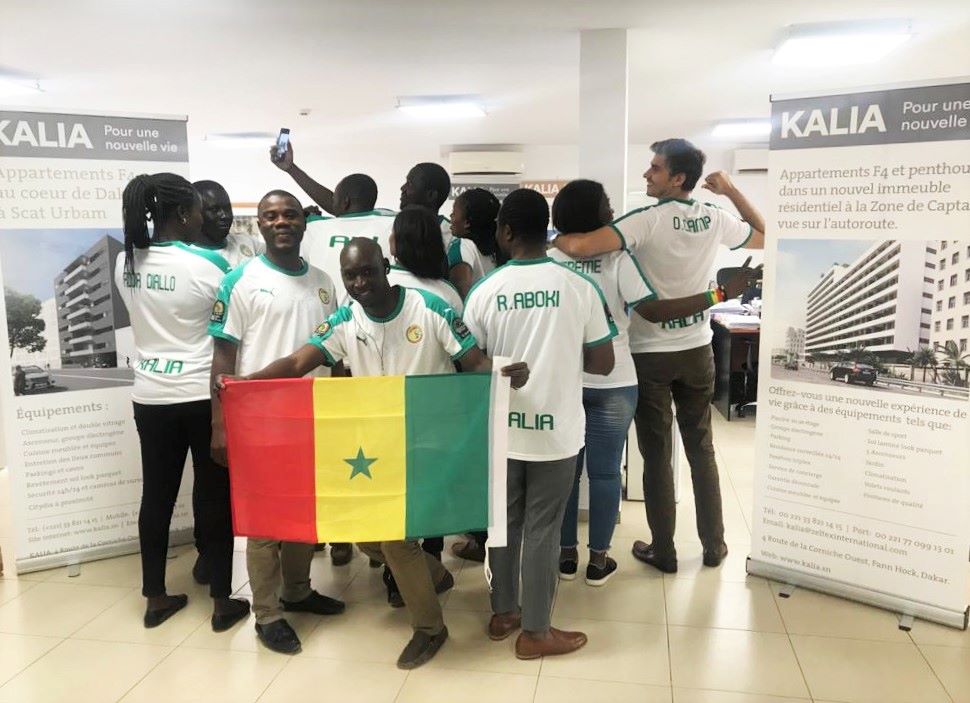
Photo Courtesy of Kalia
Lessons from Doing Business in a Developing Country
Every entrepreneurial endeavor has an intangible profit: learning. Doing business abroad, especially in a developing country, requires a special mindset and skills to adapt and thrive.
Since he started this journey in Senegal, Ricard Camp has noted the elements that have made a difference in his business and probably some of the reasons for success:
1. Absolute immersion
“I have met many entrepreneurs who have wanted to come and direct from a distance. The first requirement is to live there.” Absolute immersion is the only way to get to know where you are at. To know the people and their needs, how things work and at what speed. This will get you to be trusted as well.
“Do not launch an investment abroad without absolute immersion.”
2. Local talent
One of the keys to the company’s success is that all of Kaila’s employees are Africans. Managers and directors might have foreign education but they are locals, making them the right ones at managing daily tasks. This allows Camp and his family time to think strategically and plan a road map. Even though there’s always one of them physically there, the local managing team is a great support to execute. Trusting their employees is fundamental for developing that plan.
“They know the people and they probably know how to do things in their country better than we do. We will always be there, but having a strong team is key.”
3. Adapt to the environment
When switching from investing in matured markets to a developing country, it’s easy to encounter frustrations and feel like things are failing. “It will happen that the supplier is not going to comply with you. The companies, in the end, are built on planning and execution. Be ready to adapt your strategy to the context of the country you are in. Sometimes, a bad realistic scenario, when planned, is better than a good one unplanned.”
Betting on the future of Senegal
To date, Kalia has delivered 316 houses and 1600 more are under construction. By the end of January another construction project will be completed, followed by another in April 2020. Since the real estate market goes hand-in-hand with the economic growth of a country, it seems likely that Kaila will keep on supporting the development of Senegal and its people.
